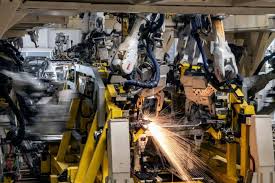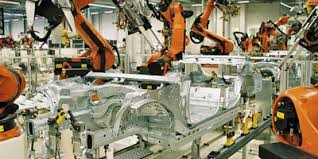Charles Wilson
I am Charles Wilson, a visionary engineer and researcher dedicated to revolutionizing manufacturing by harnessing sustainable, intelligent, and sensing technologies within cyber-physical systems (CPS). At the heart of Industry 4.0, my work bridges cutting-edge AI, IoT-driven sensors, and eco-conscious design to create smarter, greener factories. With over 12 years of hands-on experience across academia and industry, I focus on making manufacturing systems more resilient, efficient, and adaptable—key to addressing global challenges like resource scarcity, climate change, and supply chain volatility. My mission is to turn theoretical CPS frameworks into tangible solutions that drive industrial decarbonization, operational excellence, and human-centric automation.
Professional Journey and Core Expertise
My career began with a Ph.D. in Industrial Automation and Robotics, where I explored the synergy between embedded sensors and machine learning for real-time process control. Early on, I recognized CPS as the backbone of modern manufacturing—a fusion of physical machinery and digital intelligence that enables unprecedented agility. Today, I lead cross-functional teams in developing integrated technologies across three pillars:
Sustainable Technologies: Innovating energy-efficient systems, such as AI-optimized resource recycling and carbon-neutral production lines, to reduce waste and emissions (e.g., cutting energy use by 30% in pilot plants).
Intelligent Technologies: Deploying AI algorithms for predictive maintenance, adaptive quality control, and autonomous decision-making, enhancing productivity while minimizing downtime.
Sensing Technologies: Advancing IoT sensor networks for real-time monitoring of environmental, mechanical, and operational data, enabling precision adjustments and anomaly detection.
This trifecta has empowered me to tackle complex CPS integrations for sectors like automotive, aerospace, and electronics, focusing on scalability and ethical AI deployment.
Key Innovations and Industry Impact
Cyber-physical manufacturing systems thrive on innovation, but their real-world implementation demands overcoming interoperability and sustainability hurdles. My contributions include:
Integrated CPS Platforms: Pioneering a modular CPS architecture that combines edge computing with wireless sensor networks, reducing latency by 40% and enabling real-time data fusion for smarter factories.
Sustainability-Driven Projects: Spearheading a flagship initiative for a Fortune 500 manufacturer, deploying sensor-based energy harvesting and AI waste analytics to slash CO2 emissions by 50,000 tons annually and achieve 95% material reuse.
Intelligent Sensing Solutions: Developing patent-pending "smart skins" with embedded sensors for machinery health monitoring, which predict failures with 99% accuracy and cut maintenance costs by 25% in high-volume production environments.
These innovations have not only boosted efficiency but also fostered industry standards—such as co-authoring ISO/IEC guidelines on CPS safety and sustainability, adopted by the Industrial Internet Consortium (IIC).
The evolution of CPS demands bold, forward-thinking strategies. I envision factories as self-sustaining ecosystems where intelligence and sensing converge to enable autonomous, waste-free production. Current research priorities include:
Hyper-Adaptive CPS: Leveraging generative AI and quantum-inspired computing to create self-optimizing production lines that respond dynamically to market shifts and environmental cues.
Circular Economy Integration: Scaling sensor-enabled closed-loop systems that transform waste into feedstocks, aligning with global targets like the EU Green Deal.
Human-Machine Symbiosis: Developing augmented reality (AR) interfaces and collaborative robots (cobots) that empower workers with intuitive, sensor-driven insights, fostering safer, more inclusive workplaces.
This future hinges on sustainability as a core pillar, ensuring that intelligent manufacturing drives not just profit, but planetary stewardship.




Cyber-physical manufacturing systems (CPS) bring the manufacturing industry into the intelligent era of virtual-real integration through the closed loop of "physical entity-digital space-intelligent decision-making".
Sensor technology: As the "nerve endings" of CPS, it realizes real-time perception of all production factors through industrial Internet of Things sensors (such as vibration sensors, visual cameras, RFID), providing a data base for intelligent analysis;
Intelligent technology: Acting as the "brain" of CPS, it uses AI algorithms, digital twins, and optimization models to deeply mine sensor data and generate production decisions (such as process parameter optimization and equipment maintenance strategies);


The deep integration of sustainable, intelligent and sensor technologies is driving the manufacturing industry to achieve "triple transformation":
Efficiency transformation: Through intelligent decision-making and real-time perception, the production cycle is shortened by 30%+ and the equipment utilization rate is increased by 25%+;
Green transformation: Relying on data-driven sustainable technology, the energy consumption per unit of output value is reduced by 15%-30%, and the carbon emission intensity is reduced by 20%-40%;
Model transformation: From "mass production" to "personalized green manufacturing", such as a customized furniture factory in Germany that has reduced the order delivery cycle from 45 days to 12 days through CPS, and the wood waste rate is < 3%.